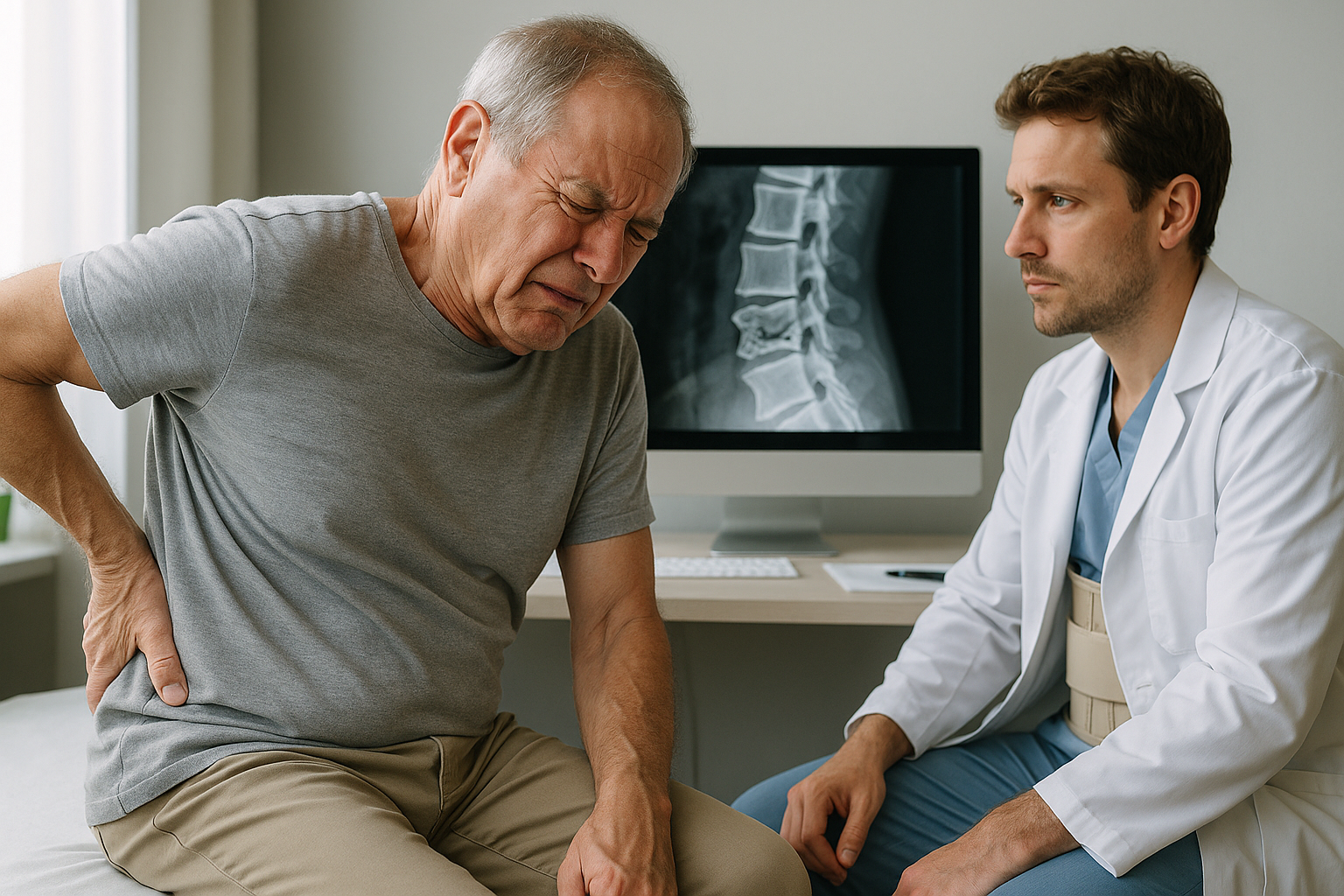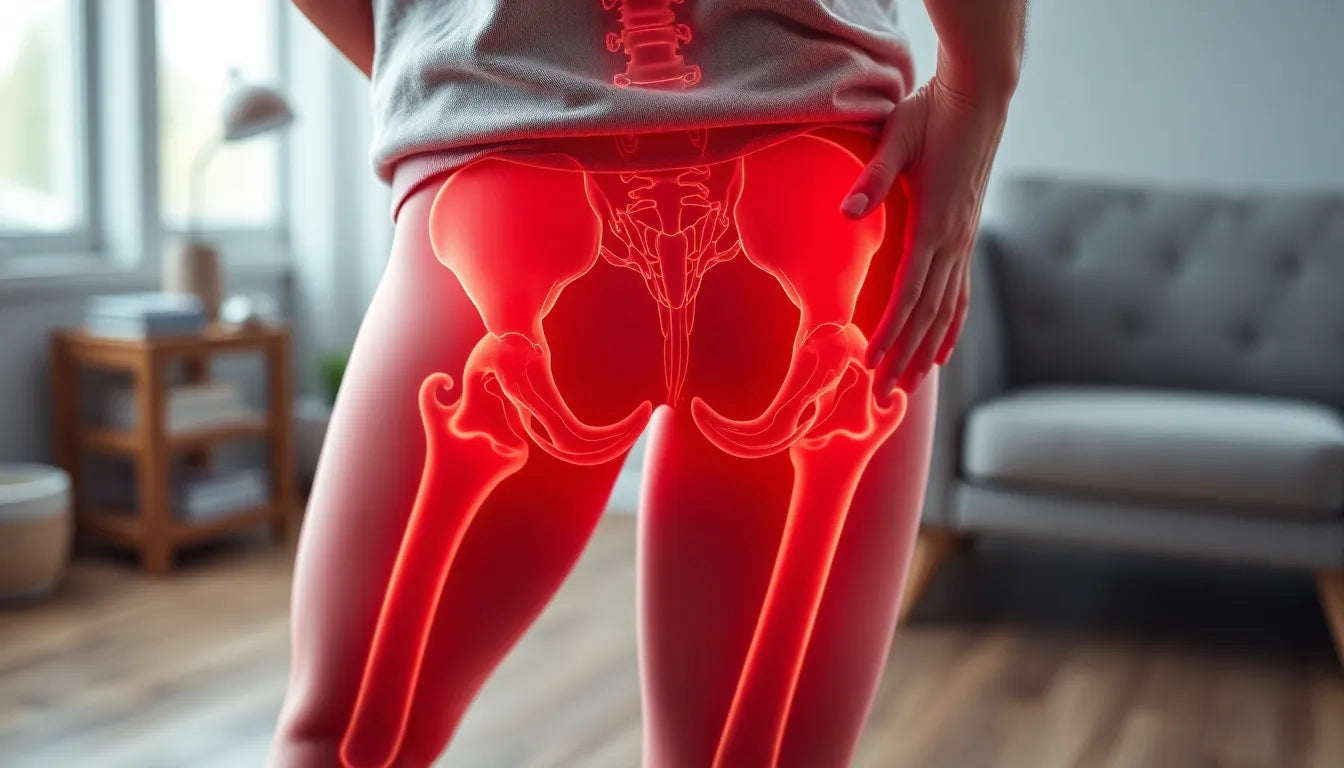Imagine waking up in the morning or simply moving around during your day, only to be met with an unsettling burning sensation on your back. It's a feeling that can be both perplexing and uncomfortable, and one that many people experience at some point in their lives. This burning sensation can range from mildly irritating to intensely painful, and it can stem from a variety of causes. Understanding what might be behind this discomfort is the first step toward finding relief.
Why understanding the cause is crucial
Identifying the root cause of a burning sensation in the skin on your back is essential for effective management and relief. The sensation can be attributed to several factors, including nerve-related issues, muscle injuries, and various medical conditions. Each of these categories comes with its own set of potential triggers and symptoms, making it important to pinpoint the specific cause in order to address it appropriately.
Nerve issues, for instance, might include conditions like herniated discs or spinal stenosis, which can irritate or compress nerves, leading to that familiar burning feeling. On the other hand, muscle injuries or strains, often resulting from overuse or poor posture, can also manifest as a burning sensation. Meanwhile, medical conditions such as shingles or neuropathy can add another layer of complexity to the diagnosis.
What to expect in this post
This blog post will take you on a journey through the various causes of burning sensations on the back, helping you recognize symptoms and understand when it might be time to seek medical care. We'll explore the nerve-related issues, muscle and structural causes, and systemic conditions that could be contributing to your discomfort. Additionally, we'll provide insights into relief options and lifestyle adjustments that can help alleviate symptoms and prevent future occurrences.
Knowing when to consult a healthcare professional is crucial, especially if the burning sensation is accompanied by other symptoms such as numbness, muscle weakness, or fever. These could indicate a more serious underlying condition that requires prompt attention. By the end of this post, you'll have a clearer understanding of the potential causes of your symptoms and the steps you can take to find relief.
Exploring nerve-related causes of burning sensations
When it comes to nerve-related causes, two primary conditions often come into play: herniated discs and spinal stenosis. These conditions can lead to nerve compression or irritation, resulting in the burning sensation many experience on their back. A herniated disc occurs when the soft inner gel of a spinal disc pushes through a crack in its tougher exterior, potentially pressing on nearby nerves. This pressure can cause a burning sensation that may radiate to the limbs, depending on the affected nerve pathways.
Spinal stenosis, on the other hand, involves the narrowing of spaces within the spine, which can put pressure on the nerves. This condition often results in burning pain that worsens with standing or walking and tends to ease when sitting down. Understanding these nerve pathways and how compression affects them is crucial for both diagnosis and treatment. A visual diagram of these pathways can often help clarify how such compression leads to symptoms.

Lumbar support belt
Support and stabilize your lower back to combat pain from discs, sciatica, or strain.
The impact of shingles on back pain
Shingles, or herpes zoster, is another significant cause of burning sensations on the back. This condition is caused by the reactivation of the varicella-zoster virus, which also causes chickenpox. Initially, shingles may present as a burning pain on one side of the back, often followed by the appearance of a rash. The pain associated with shingles can be severe and may persist long after the rash has healed, a condition known as postherpetic neuralgia.
Early diagnosis and treatment of shingles are crucial in reducing the severity and duration of symptoms. Antiviral medications can help manage the outbreak and minimize complications, emphasizing the importance of seeking medical advice at the first sign of symptoms.
Muscle injuries and structural causes
Muscle injuries and structural issues are common culprits behind burning sensations on the back. Acute muscle tears, overuse injuries, and strains from poor posture can all lead to localized burning pain. Activities such as heavy lifting, repetitive motions, or even prolonged sitting can contribute to muscle strain. These injuries often respond well to rest, ice, and anti-inflammatory treatments, allowing the muscles to heal over time.

Men's Posture Shirt™ - White
Patented shirt activates muscles, improves posture, and relieves back pain and tension.
Aging and arthritis also play a role in back pain, as degenerative changes in the spine can cause inflammation and nerve compression. Arthritis, in particular, can lead to inflamed spinal joints, contributing to the burning sensation. Maintaining good posture and engaging in regular physical activity can help manage these symptoms and prevent further deterioration.
Systemic and other neurological conditions
Beyond local nerve and muscle issues, systemic conditions like diabetic neuropathy and fibromyalgia can also cause persistent burning pain in the back. Diabetic neuropathy results from nerve damage due to high blood sugar levels, often leading to constant burning pain that is not dependent on posture. Fibromyalgia, a condition characterized by widespread musculoskeletal pain, can also present as a burning sensation in the back, often accompanied by fatigue and cognitive difficulties.
Notalgia paresthetica is a more localized neurological condition that often causes burning or itching between the shoulder blade and spine. While not as common, it's important to consider this condition when evaluating unexplained burning sensations on the back. Understanding these systemic and neurological causes can help differentiate them from more common musculoskeletal issues, guiding appropriate treatment and management strategies.
Other causes and lifestyle factors impacting burning sensations
Infections and stress are additional contributors to the burning sensation in the skin on the back. Infections such as spinal bone infections or epidural abscesses can lead to severe burning pain, often accompanied by fever and rapid progression of symptoms. It is crucial to seek medical attention if these symptoms are present. Stress, on the other hand, can manifest physically through increased muscle tension, which may lead to a burning or tingling sensation. Implementing stress management techniques, such as mindfulness and regular exercise, can help alleviate these symptoms.
Lifestyle factors also play a significant role in the development of burning sensations on the back. Activities involving heavy lifting, prolonged periods of inactivity, obesity, and smoking can increase the risk of muscle and nerve issues. To mitigate these risks, consider incorporating lifestyle modifications such as maintaining a healthy weight, engaging in regular physical activity, and avoiding smoking. A checklist of these lifestyle changes can serve as a practical guide for reducing the risk of back pain.
When to seek medical care
While many cases of burning sensations in the back can be managed with home care and lifestyle adjustments, certain symptoms warrant immediate medical attention. These include the presence of a fever, rash, unexplained weight loss, or muscle weakness. Additionally, if the burning sensation is severe, persistent, or accompanied by neurological symptoms such as numbness or tingling, it is important to consult a healthcare professional. Distinguishing between minor and serious causes is key to ensuring timely intervention and effective treatment.
Frequently asked questions
What causes a burning sensation on one side of the back?
Conditions like shingles and notalgia paresthetica often affect one side of the back. Shingles typically begin with burning pain on one side before a rash appears, while notalgia paresthetica is a localized neurological condition causing burning or itching between the shoulder blade and spine.
Can stress cause a burning sensation in the back?
Yes, stress can lead to a burning sensation in the back by causing increased muscle tension. This tension can result in discomfort and burning sensations, highlighting the importance of stress management techniques.
Is a burning sensation in the back a sign of a serious condition?
While many instances are benign and related to muscle strain or stress, a burning sensation can sometimes indicate a more serious underlying issue, such as an infection or nerve compression. Consulting a healthcare professional is advised if symptoms are severe or persistent.
What are some effective treatments for burning back pain?
Treatments for burning back pain include rest, physical therapy, ergonomic aids, and, in some cases, medication. Addressing the underlying cause is essential for effective relief. Consulting with a healthcare provider can help tailor a treatment plan to individual needs.
How can I prevent burning sensations in my back?
Preventive measures include maintaining good posture, engaging in regular exercise, using ergonomic solutions, and avoiding activities that strain the back. Lifestyle modifications such as weight management and quitting smoking can also reduce the risk of developing burning sensations.
Källor
- New York Spine Specialist. (n.d.). "Burning Back Pain Causes."
- Healthgrades Editorial Staff. (n.d.). "Burning Sensation in Back."
- NY Spine. (n.d.). "What Causes Burning Back Pain?"
- HealthCentral. (n.d.). "Burning Sensation in Back."
- Redefine Healthcare. (n.d.). "What Causes Burning Back Pain?"
- Cleveland Clinic. (n.d.). "Burning Pain in Back."
- Healthline. (n.d.). "Burning Sensation in Upper Back."
- Medical News Today. (n.d.). "Burning Sensation in the Back: Causes and Treatment."
- Cleveland Clinic. (n.d.). "Notalgia Paresthetica."
- Mayo Clinic. (n.d.). "Pinched Nerve."
- Medical News Today. (n.d.). "What to Know About Burning Sensation in the Back."
- Kane Hall Barry. (n.d.). "Burning Sensation."
- NHS. (n.d.). "Complex Regional Pain Syndrome - Symptoms."
- MS Trust. (n.d.). "Altered Sensations."


















